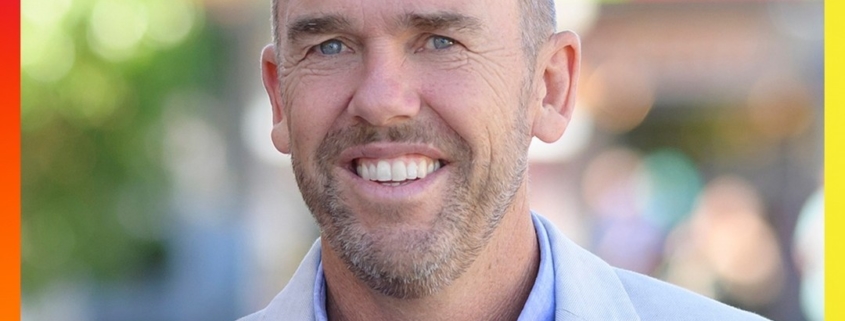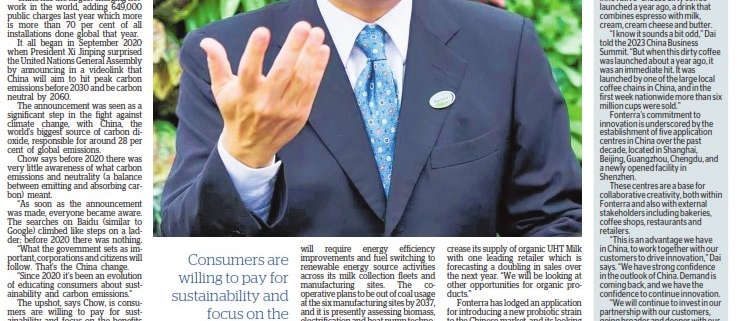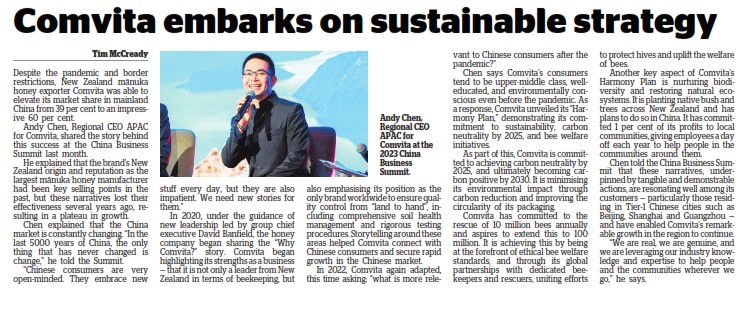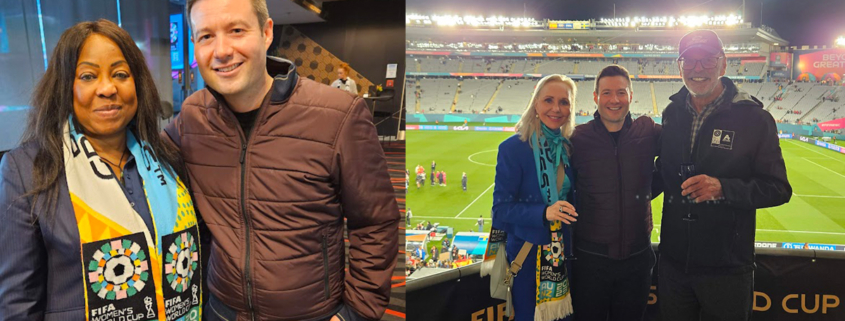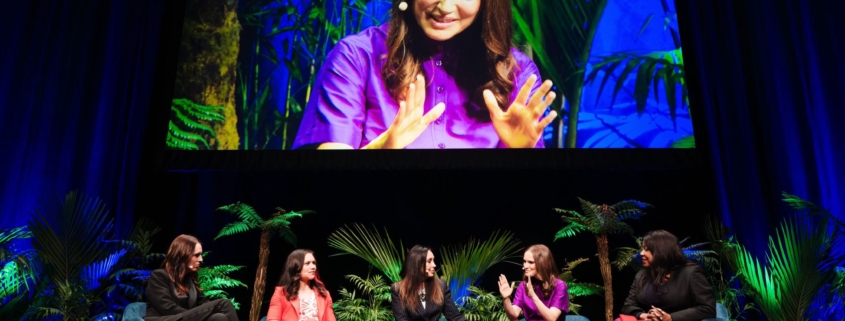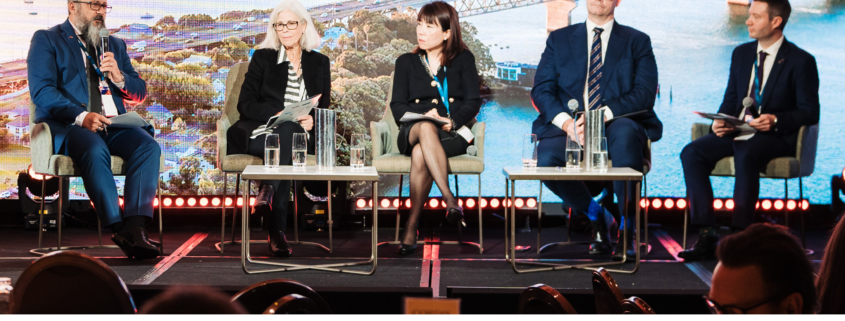Despite the pandemic and border restrictions, New Zealand mānuka honey exporter Comvita was able to elevate its market share in mainland China from 39 per cent to an impressive 60 per cent.
Andy Chen, Regional CEO APAC for Comvita, shared the story behind this success at the China Business Summit last month.
He explained that the brand’s New Zealand origin and reputation as the largest mānuka honey manufacturer had been key selling points in the past, but these narratives lost their effectiveness several years ago, resulting in a plateau in growth.
Chen explained that the China market is constantly changing. “In the last 5000 years of China, the only thing that has never changed is change,” he told the Summit.
“Chinese consumers are very open-minded. They embrace new stuff every day, but they are also impatient. We need new stories for them.”
In 2020, under the guidance of new leadership led by group chief executive David Banfield, the honey company began sharing the “Why Comvita?” story. Comvita began highlighting its strengths as a business — that it is not only a leader from New Zealand in terms of beekeeping, but also emphasising its position as the only brand worldwide to ensure quality control from “land to hand”, including comprehensive soil health management and rigorous testing procedures. Storytelling around these areas helped Comvita connect with Chinese consumers and secure rapid growth in the Chinese market.
In 2022, Comvita again adapted, this time asking: “What is more relevant to Chinese consumers after the pandemic?”
Chen says Comvita’s consumers tend to be upper-middle class, well-educated, and environmentally conscious even before the pandemic. As a response, Comvita unveiled its “Harmony Plan,” demonstrating its commitment to sustainability, carbon neutrality by 2025, and bee welfare initiatives.
As part of this, Comvita is committed to achieving carbon neutrality by 2025, and ultimately becoming carbon positive by 2030. It is minimising its environmental impact through carbon reduction and improving the circularity of its packaging.
Comvita has committed to the rescue of 10 million bees annually and aspires to extend this to 100 million. It is achieving this by being at the forefront of ethical bee welfare standards, and through its global partnerships with dedicated beekeepers and rescuers, uniting efforts to protect hives and uplift the welfare of bees.
Another key aspect of Comvita’s Harmony Plan is nurturing biodiversity and restoring natural ecosystems. It is planting native bush and trees across New Zealand and has plans to do so in China. It has committed 1 per cent of its profits to local communities, giving employees a day off each year to help people in the communities around them.
Chen told the China Business Summit that these narratives, underpinned by tangible and demonstrable actions, are resonating well among its customers — particularly those residing in Tier-1 Chinese cities such as Beijing, Shanghai and Guangzhou — and have enabled Comvita’s remarkable growth in the region to continue.
“We are real, we are genuine, and we are leveraging our industry knowledge and expertise to help people and the communities wherever we go,” he says.



